
In the hustle and bustle of business today, good leadership coaching skills are more important than ever. Companies with strong coaching cultures see a 21% boost in their results. That's quite a jump, showing just how powerful leadership coaching can be. Whether you're looking to become a coach, already leading a team, or just curious about guiding others, it's key to grasp what makes leadership coaching tick. In this guide, we'll look at why leadership coaching works so well, the must-have skills for any coach, and even how AI is shaking things up in this area. So, get ready as we explore the ins and outs of leadership coaching and how it can help both people and companies thrive.
Summary: This article describes the essential skills, practical applications, and best practices for leadership coaching, including the role of AI in enhancing these coaching skills. It provides a comprehensive overview for developing effective leadership coaching abilities.
Understanding Leadership Coaching Skills
Definition and Importance of Leadership Coaching Skills
Leadership coaching is all about giving leaders the tools they need to grow and succeed. It's a one-on-one support system that helps leaders build the skills they need to work well with others. This process boosts a leader’s clarity, confidence, and ability to lead with integrity.
By helping leaders find their deeper purpose and tapping into their potential, leadership coaching is a big deal in today's organizations. It’s about a partnership where a coach helps leaders make better decisions and improve how their teams work together, all while aligning their style with the company’s goals.
This is key in our fast-paced world because it helps leaders tackle tough challenges, make smart choices, and foster a positive workplace culture, which in turn boosts the organization's performance and productivity.
Key Principles of Leadership Coaching Skills
Personalized Leadership Coaching
Leadership coaching is all about the individual. It’s tailored to fit each leader’s experiences, values, and challenges. This means it’s not a one-size-fits-all deal. The personalized approach ensures the coaching is spot on for each leader, focusing on what they specifically need.
Fostering a Growth Mindset in Leaders
A big part of leadership coaching is encouraging a growth mindset. It’s about always improving and being ready to adapt to change. This helps leaders come up with their own solutions instead of relying on generic advice. Through focused, one-on-one sessions, leaders can tap into their own insights and wisdom.

Enhancing Emotional Intelligence in Leadership
Coaching boosts self-awareness and emotional intelligence. It helps leaders understand and manage their own emotions and those of others better. This leads to improved communication and teamwork.
Building Strategic Vision and Leadership Skills
Leadership coaching also focuses on developing skills like strategic thinking, delegation, conflict resolution, and communication. This well-rounded approach helps leaders handle change and improve how their teams work together, making them more effective overall.
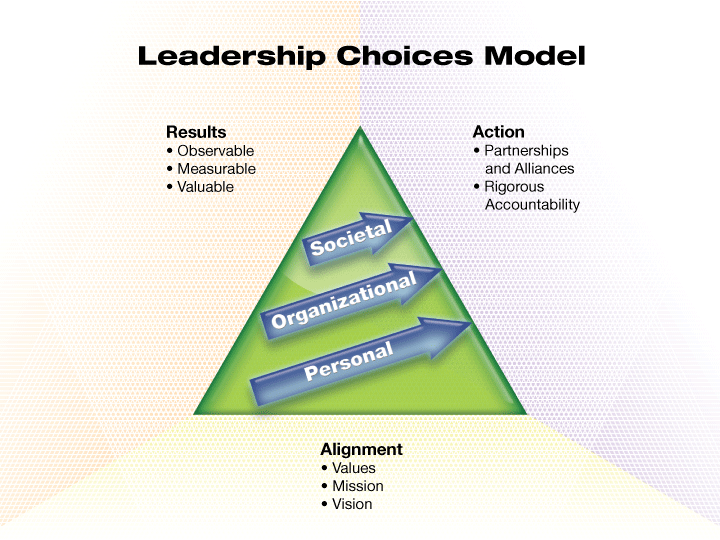
For more insights on leadership coaching and its methods, check out resources that explore its impact on leaders and organizations.
Essential Leadership Coaching Skills
Active Listening and Building Empathy
Active listening is key to effective coaching. It involves more than just hearing words; it's about being fully present, avoiding interruptions, and recognizing non-verbal cues like body language. This approach helps coaches genuinely understand their coachees' thoughts and feelings.
Empathy plays a significant role here. It allows coaches to connect with their employees' emotions, fostering a safe space where individuals feel heard and valued. By demonstrating empathy, coaches validate their coachees' experiences, enhancing trust and openness. This method establishes a solid foundation for coaching and addresses any unspoken concerns, strengthening the connection even further.

Mastering Effective Questioning Techniques
Asking the right questions is crucial in coaching as it reveals the true needs and desires of a coachee. Open-ended questions are particularly effective, as they encourage deep thinking and meaningful dialogue. For instance, asking, "What challenges are you facing?" prompts coachees to explore their thoughts more thoroughly.
The OARS technique—Open-ended questions, Affirming, Reflecting, and Summarizing—facilitates engagement with coachees. It leads to deeper conversations and empowers them to discover their own solutions. By posing insightful questions, coaches help coachees achieve clarity and direction, which is essential for effective coaching. These techniques ensure alignment between the coach and coachee.
Strategic Goal Setting and Action Planning
Focusing on goals is a critical component of leadership coaching. Coaches assist coachees in identifying goals, assessing skills, and creating actionable plans. Together, they establish clear, achievable objectives using the SMART criteria—Specific, Measurable, Achievable, Relevant, and Time-bound.
Once goals are defined, coaches help break them down into manageable tasks, leveraging the coachees' strengths for growth. This process enhances team performance and maintains employee motivation. Regular check-ins and adjustments ensure coachees remain on track, leading to successful outcomes. This structured approach builds the coachee's confidence and leadership skills.
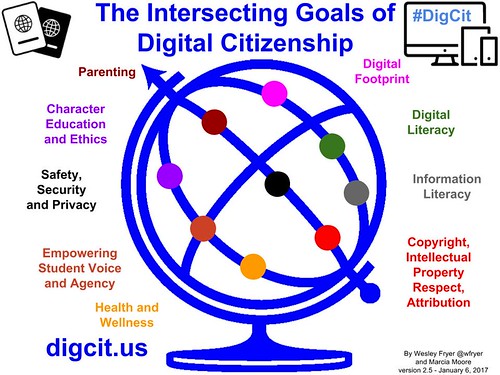
BetterUp Labs found that inclusive leadership, a vital coaching skill, increases productivity by 50%, innovation by 90%, and engagement by 150%, while reducing turnover rates by 54%. These statistics underscore the impact of inclusive leadership on fostering a productive and engaging work environment.
Practical Applications of Leadership Coaching Skills
Case Studies and Real-World Examples of Leadership Coaching
Leadership coaching can significantly enhance leadership skills across various domains. One particularly effective method is the 360-degree feedback system. This system provides leaders with insights from their supervisors, peers, team members, and sometimes even customers or external partners. Such feedback aids leaders in becoming more self-aware and identifying areas for improvement, thus enhancing their effectiveness. For instance, a company improved its managers' leadership skills by implementing a 360-degree assessment and subsequently tailoring its training program based on the results.

Another impactful approach is immersive development experiences. These experiences place leaders in practical situations where they can apply their skills directly, boosting their confidence and decision-making abilities under pressure. Examples include:
- Workshops
- Retreats
- Simulations
- Immersive games
- Reverse leadership experiments
A real-world example is a frontline manager working as an operator on a production line for a day to better understand team challenges.
Leadership coaching also provides personalized guidance, combining practical application with measurable results. This accelerates learning and fosters intrinsic motivation. These examples demonstrate how leadership coaching can enhance leadership effectiveness and improve organizational culture.
Leadership Coaching Skills in Different Contexts
Leadership coaching is adaptable to various settings, focusing on enhancing emotional intelligence, such as self-awareness, empathy, and emotion management. This enables leaders to navigate complex relationships and inspire their teams. Coaching fosters trust and encourages collaboration by developing active listening skills and teaching how to provide constructive feedback.
Furthermore, leadership coaching enhances soft skills, such as adapting communication styles and delivering impactful messages. Effective coaching plans assess leadership styles, incorporate role-playing of challenging conversations, and offer ongoing feedback. One-on-one coaching sessions complement group learning by providing leaders with clear, actionable strategies for personal growth.
These diverse applications illustrate the flexibility of leadership coaching, underscoring its value in developing effective leaders across different fields.
For more insights, explore these resources on 360-degree feedback, immersive development experiences, and leadership coaching skills.
The Role of AI in Leadership Coaching
Deepbrain AI and AI Studios: Transforming Leadership Coaching
Deepbrain AI is at the forefront of AI solutions, offering platforms like AI Studios. These platforms are designed to create digital avatars and virtual assistants powered by AI, making interactions more engaging and personalized.
With AI Studios, you can develop interactive avatars for coaching, training, and communication. This enhances engagement and personalizes experiences. For instance, a leadership coach might employ AI Studios to design a virtual coach that provides tailored leadership advice. The AI analyzes a leader's communication style and decision-making patterns to deliver customized feedback and improvement strategies.
Advantages and Challenges of AI in Leadership Coaching Skills
AI is revolutionizing leadership coaching by offering personalized feedback and valuable insights, crucial for enhancing leadership skills. AI coaching platforms analyze data from various sources, such as psychometric tests, 360-degree feedback, and performance metrics, to identify leadership strengths and growth opportunities. They provide tailored advice that is consistent and scalable, ensuring a uniform coaching experience free from human biases.
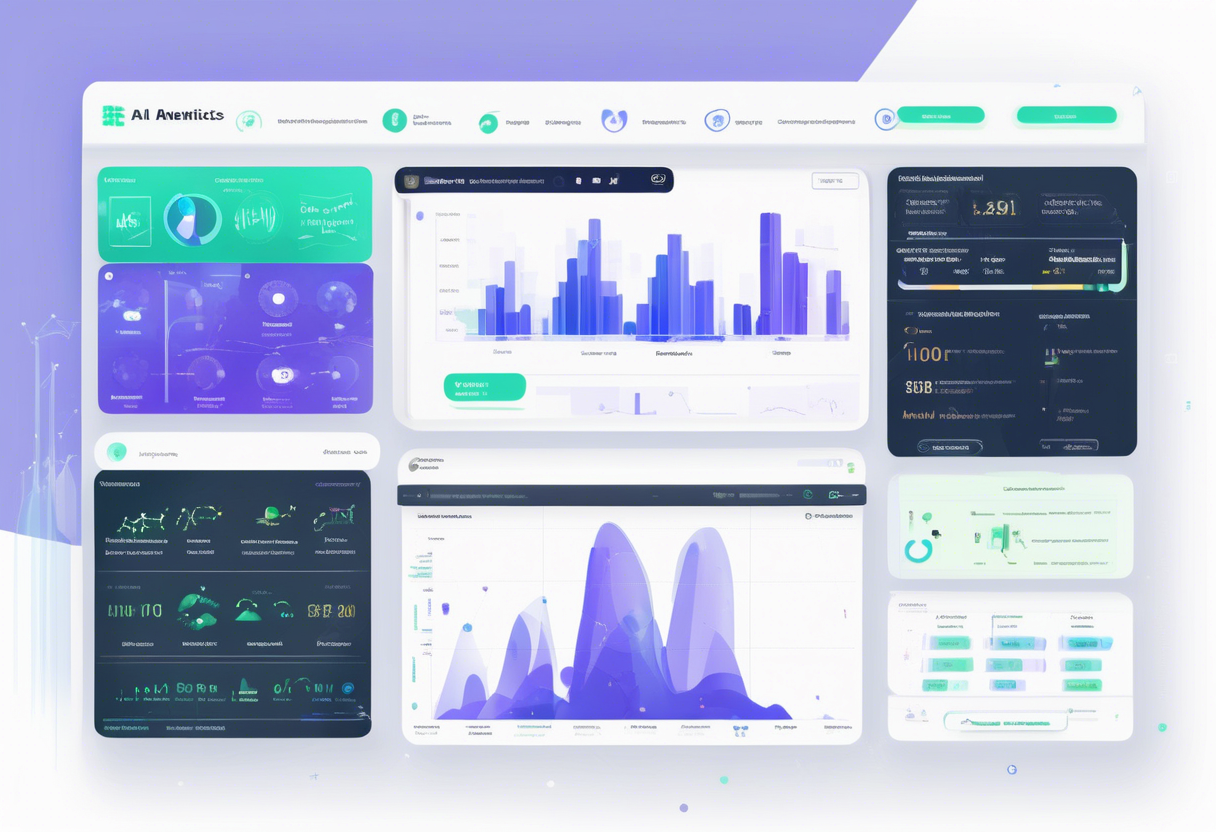
Moreover, AI coaching utilizes video simulations to evaluate verbal and non-verbal behaviors in realistic scenarios. This offers objective, real-time feedback, aiding in the improvement of interpersonal leadership skills. AI delivers highly personalized content that adapts to individual needs, cultural contexts, and language preferences, making leadership development accessible to a diverse audience.
However, AI in coaching does have its limitations. It must be balanced with human expertise, as emotional intelligence and complex human judgment are often better managed by humans. While AI excels in data-driven insights, it can struggle with creative problem-solving or thinking outside the box. Privacy is another concern since AI coaching involves collecting personal data, necessitating robust data protection measures. Despite these challenges, AI remains a valuable tool for enhancing leadership coaching.
Best Practices for Developing Leadership Coaching Skills
Continuous Learning for Leadership Coaching
To truly excel in leadership coaching, continuous learning and growth are essential. According to the International Coaching Federation's Core Competency Model, effective coaching hinges on the practice of skills like listening, asking insightful questions, and clear communication. Deliberate practice and constructive feedback significantly enhance these abilities. As noted by DDI World, leaders who engage in these practices are more likely to be enthusiastic about applying new skills and eager to advance in their careers.
Improving as a Coach:
- Identify Strengths: Understand your strengths and leverage them.
- Set Clear Goals: Establish clear, achievable objectives.
- Seek Mentors: Find mentors who can provide guidance and feedback.
- Build Confidence: Reflect on experiences and embrace positive feedback.
Leveraging technology, such as virtual workshops, online courses, and AI coaching tools, makes learning more accessible and personalized, as highlighted by the Academy to Innovate HR.
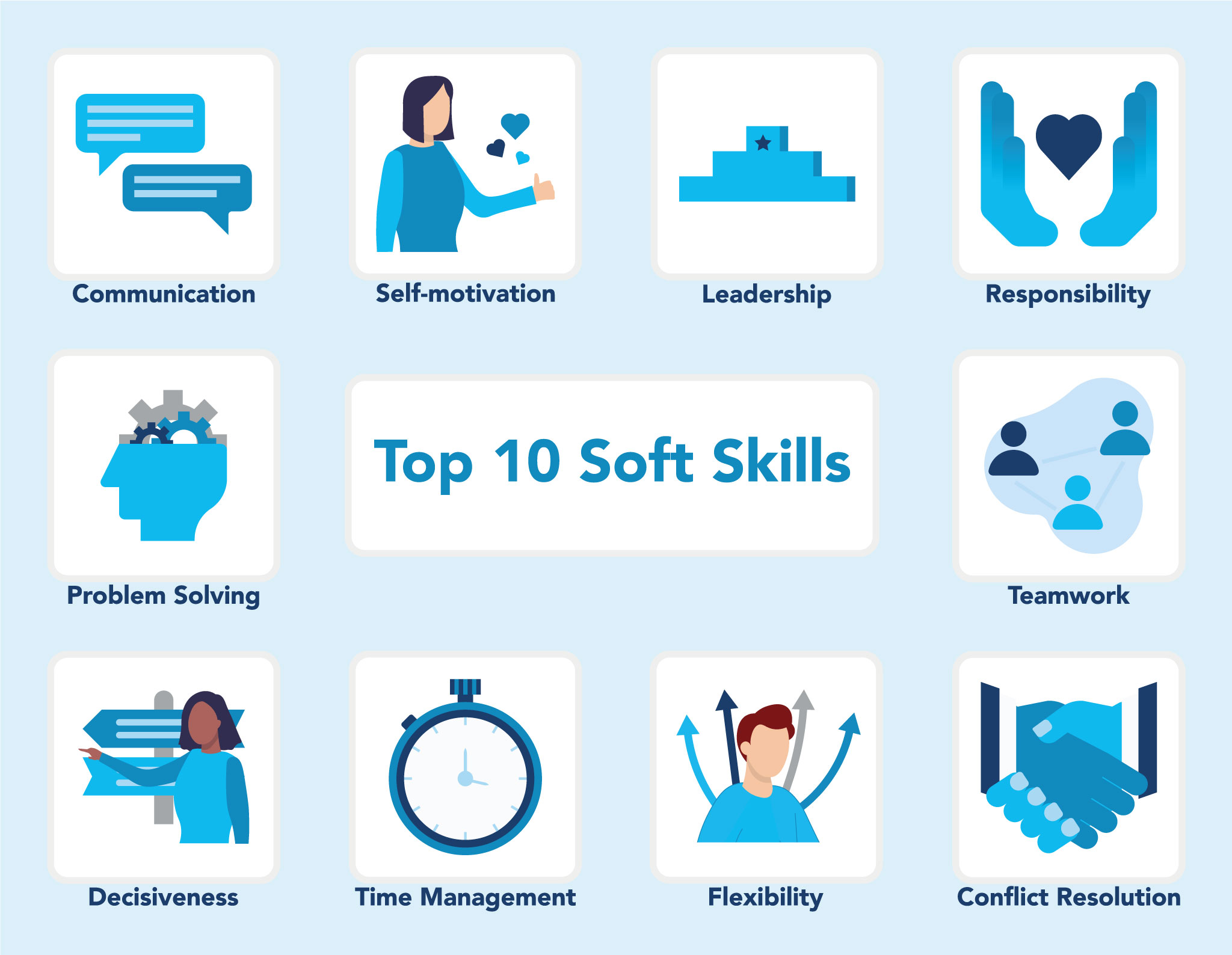
Creating a Leadership Coaching Culture
Establishing a coaching culture begins with fostering trust between managers and employees, as emphasized by the Together Platform. Peer learning networks and coaching circles offer continuous support and promote knowledge sharing, reinforcing coaching habits organization-wide. Creating a safe environment where leaders can experiment and learn without fear of negative consequences is crucial, as suggested by DDI World.
Maintaining Effective Coaching:
- Avoid Common Pitfalls: Steer clear of not providing feedback or practicing without purpose.
- Be Patient and Supportive: Cultivate an atmosphere where employees feel comfortable growing both professionally and personally.
Strengthening the coaching culture ensures its effectiveness and relevance, as advised by Indeed Career Advice.
FAQ Section
Optimizing Leadership Coaching Skills for Better Outcomes
To get the most out of your leadership coaching, clear communication is key. You need to deliver your messages in a way that clients understand and can act on source.
- Active listening is crucial. It helps you understand your clients better and builds trust source.
- Empathy plays a big role, too. It lets you connect with your clients' feelings and creates a safe space for honest talks source.
Patience and understanding are important when guiding clients through tough spots source.
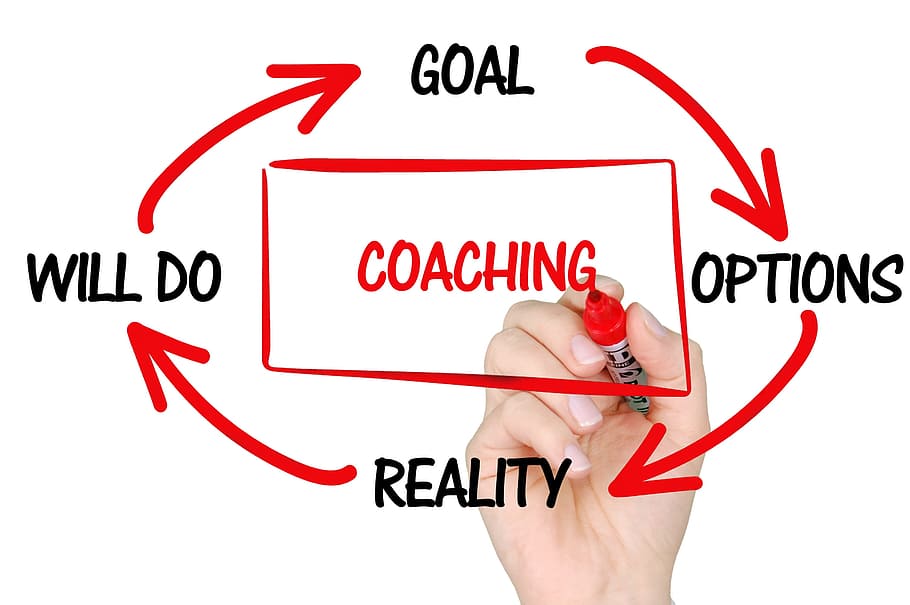
Being self-aware helps you understand both yourself and your clients, strengthening the coaching bond source. Practicing inclusive leadership makes clients feel they belong and helps them use their strengths, boosting outcomes source.
Keeping a positive outlook encourages clients to focus on their strengths instead of their weaknesses source. Offering guidance while letting clients make their own choices supports their growth and independence source.
Best Practices for Developing a Compelling Coaching Style
Building strong interpersonal skills is key to creating trust and comfort with clients source. Good communication helps you share your vision clearly and listen to client feedback source.
Using an inclusive leadership style helps tackle biases and creates a sense of belonging source. Creating a space of psychological safety and trust allows for open and honest conversations source.
Developing emotional intelligence helps you manage both your own and your clients' emotions source.

Being sincere and authentic builds credibility and strong relationships source. Focusing on goal-oriented coaching helps clients set and achieve clear, actionable goals source.
Encouraging a growth mindset helps clients tackle challenges and keep learning source.
Differences Between Leadership Coaching and Other Coaching Types
Leadership coaching zeros in on helping clients grow personally and professionally in leadership roles source. It focuses on developing skills like communication, empathy, relationship-building, and self-awareness, all tailored to leadership source.
Unlike other coaching that might target specific skills or life areas, leadership coaching empowers individuals to make their own decisions and find their answers, promoting autonomy source.
Leadership coaching often involves creating a safe space where clients feel comfortable discussing challenges related to team management and organizational goals source. It goes deeper into inclusive leadership and emotional intelligence compared to general coaching to address workplace diversity and interpersonal dynamics source.